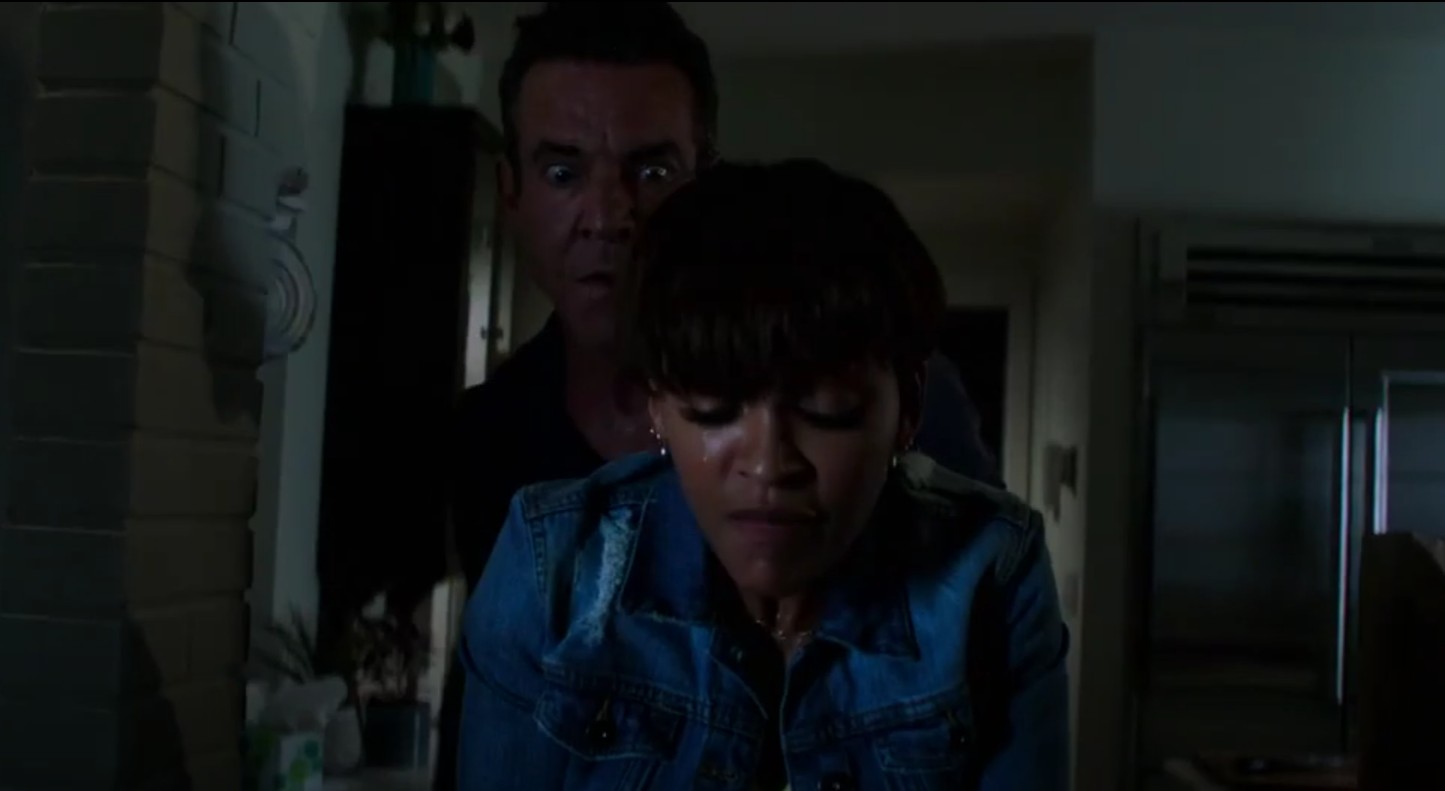

Despite being an unconventional choice to play a villain of any kind, Quaid throws himself into the role of Charlie with a manic energy that borders on the heroic. A middle-aged, blue-collar worker is forced from his home by his own financial failures but convinces himself he can earn everything back if he just murders the black man who took his place? It’s the kind of overearnest plotting that would stagnate if delivered with a straight face, but it works divinely when hidden beneath a layer of escalated emotions and genre tropes.

Everything that happens is designed to cut the film’s overt social commentary with melodramatic character and story beats. But in this case, the broad spectacle of the film is a feature, not a bug. Many will see The Intruder’s PG-13 rating and aging antagonist, then write it off as a misplaced direct-to-video curio. Until, of course, Charlie’s drop-ins become a little more frequent and a little less innocent. They’re even willing to overlook the occasional visit from Charlie (Quaid), the previous owner, who seems like nothing more than a middle-aged widower looking to help out a little. Soon they find the perfect home to start a family rustic, remote, and surrounded by woods, this luxurious property is everything they’ve ever wanted. And yes, you absolutely read that right the first time.Īfter earning millions as a San Francisco marketing executive, city kid Scott (Ealy) agrees to settle down in Napa Valley with his wife Annie (Good). So let’s save everyone some time: The Intruder is a delightful use of the conventions of melodrama to subvert traditional horror archetypes. It’s one thing when an acclaimed director adopts the emotional language of melodrama in their latest feature, but when this mode of cinema rears its head in more traditional genres – such as horror or tragedies – audiences can be slow to take it seriously. Good melodrama is sometimes hard to spot.


 0 kommentar(er)
0 kommentar(er)
